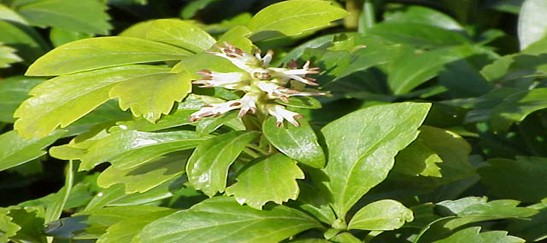Japanese Spurge are perennial flowers and remains evergreen. Moreover it is a slow-growing plant. The flowers of this plant are white. One thing you must take care of it is that keep away it from the direct sun as its leaves get yellow.
Origin:
These are native to see countries:
- China.
- Japan.
- Korea.
Genus: Its genus is Pachysandra.
Family:
These flowers belong to the family of Buxaceae.
- Watering
- Average water is enough.
Height: Its height is about 3_4cm.
Soil Type:
Following soil type is suitable for it.
- Sand.
- Clay.
- Chalk.
- Loam.
Spread: It can spread about 7_8cm.
Characteristics: These are showy plants.
Soil Drainage: Moist and well drained soil is best for it.
Tolerance: It can tolerate deer, drought, hard and rough soil.
Seasons:
Two seasons are good for it and are mentioned below:
- Summer.
- Spring.
Pant Type: Shrubs and perennial are the plant type of this plant.
Spacing: It needs 6_12cm spacing.
Garden Uses: It is useful for slopes and banks.
Exposure: Shade or partial sun is best.
Maintenance:
Here are some important tips are given below that you must follow to protect your flower growth:
- Provide partial sun or shade place for it.
- Watering on daily basis is required.
- Avoid direct sun as it can harm its leaves.
Most Frequent Asked Questions:
1. What is the common name of this plant?
The common name of this plant is Japanese Spurge pachysandra.
2. Is these flowers are poisonous?
No, these flowers contain no toxic elements and therefore your pets does not face any danger.
3. How you can take care of this plant?
It is essential to provide it natural rainfall as it is good for its growth. Furthermore, deep moisturization is necessary during dry hot weather.
4. What is the reason behind this flower dying?
This flower dies because of two reasons one is a disease and the other is insects.

